How's this for friendship? I was chatting with my wonderful friend the writer Christine Harris and said my new book probably wouldn't be reviewed by the metro media because of the title, God Is. And her immediate response was, 'I'll interview you for my blog.' Although to the kids she's a celebrity, like so many other writers for children in Australia, Christine could always do with some publicity herself, but her first thought was to be generous.
Check out her website and her new books about Audrey of the Outback. They're terrific! And this is how the interview went:
CH Mark, you’ve had many roles in children’s publishing. You have been editor, publisher, reviewer and now writer. How do you switch from one to the other and what are the differences?
MM Because from the age of ten I was writing for and editing whatever paper or magazine was being published for my fellow students, I think it was a conversation I was having with myself - and I'm still having it. My goal has always been to listen to the unique voice of the writer, hear it at its best, and then take that as the standard. I'm not interested in imposing my voice on another writer.
One of the two writers I will never work with again said to me, 'You editors just can't wait to get your grubby little hands on what I write.' Well - yes, I can. I've never felt that I was a frustrated writer. If I want or need to write, I do.
Editing is an opportunity to use whatever information I have gathered over the years to help another writer. It is also a bit of a game. Unlike many literary friends, I hate crosswords and jigsaw puzzles because the outcome is so anticlimactic. I know, I know - it's about the process! But editing is about the process, and it also produces a fantastic result if you both play the game effectively.
Editing teaches me new tricks, too, so the teaching and learning process is mutual.
And to be honest, when I was a young father of three with a mortgage, it paid more than writing. Later I discovered that for some people writing paid way more than editing ever would, but I knew the limits of my talent.
To be a good writer, you have to take risks and run with the unconscious. Editing is far more conservative and conscious, but it has made my writing sharper. While I was publishing inhouse, I kept most of my writing to myself. But intimations of mortality have made me less cautious. And I don't care as much as I used to whether people like me and what I do. So I've come back to putting what I write Out There. I still have to edit to keep the electricity flowing, though.
All aspects of producing and consuming books - writing, editing, publishing, selling, reviewing, choosing, buying and more - can be creative if you're willing.
CH Was writing your picture books easier because you know the industry, or more daunting – why?
MM I started out as a poet and I think writing a picture book text is the most like writing a poem. It has to start with a compelling idea or image, and if you're going to maximise the energy in the finished text, you can't waste words. Of course, when this turned out to be my main interest, I thought I'd lost it. What a time to get into picture books! Every publisher has found them tough going. But the opportunity to reach younger imaginations, and to combine my love of the visual arts with words was irresistible. And in any case, you can't determine whatever talent life has given you. Well - I suppose you could ignore or repress it, but the world has more than enough bitterness and guilt. Who wants to add to it!
Being a part-time bookseller for many years was more daunting than either reviewing or lecturing. As I shelved the stock, I would read the back cover blurbs and become increasingly depressed. Brilliant, innovative, heartwarming, uncompromising, bestselling, will change the course of the twenty-first century. An hour of reading such accolades was enough to persuade me that no one would ever attach these words to anything I wrote and that I should give up immediately. I just had to remind myself that one of my first paid jobs in publishing was to write those blurbs, and that Angus & Robertson gave me ten dollars for each one.
Unfortunately, although as a publisher I have tried to be generous and constructive, and I have always been aware of how little I actually know, I also know that as a writer a few people will be waiting for me to fail. But that's their problem. I expect to have to earn any success that might eventually come my way.
CH Tell us about the place you wrote GOD IS. Was it significant to the story?
MM I was chatting to one of my adult children and mentioned God. It was so natural and I thought of no consequence that I don't even remember the context. Then she said, 'Oh, Dad, I don't know if I believe in God anymore.' I know perfectly well that people can lead happy and fulfilling lives without belief in God. But her response shocked me. Not because she didn't have the right to take a different path from the one I was on, but because we've always been close and I felt bad that I hadn't noticed this change. I wrote God Is not long after that.
A writer friend who is an atheist said to me once in one of those mellow after-midnight conversations, 'It must be good believing in a god, because it would answer so many questions.' That's a common misconception. I think belief starts more questions than it resolves. Take that old phrase 'the problem of evil'. Why is it a problem? Why would 'When Bad things Happen to Good People' be a catchy title? Such questions start from a belief in goodness or God, and - believe me - they don't come to an end.
I know there's a lot of romantic mystification about the writing process and I have always hated writers saying 'it wrote itself', but the truth is that the text for God Is came easily, in one go. I had to add a whole scene when it was pointed out to me that I had miscalculated the number of pages. Ironic, when knowing such properties of the picture book has been my profession for many years. But writing that scene came easily too. In a way I feel bad that I can't say I sweated over it.
CH What are the differences between the reactions of adults and children to the text?
MM Children love Kirrily's pictures as much as I do. And I notice that reading the book aloud has a calming effect on them. (I don't think it's sleep!) They like the humour in her work, and you can still convey to Australians some pretty serious ideas by using humour - even though I suspect that we've lost a lot of our traditional ability to laugh at ourselves.
The first time I read God Is to adults I was nervous, because I was worried that the deliberate repetitions would bore them, but they clapped at the end of the reading. The poet Mark O'Connor once wrote a nifty poem exploring the use of intonation in English. It starts with the line 'What is this thing called love?' and simply repeats it five times, each time emphasising a different word in the line. It's clever and funny. And it showed me very early on that in English you can use your voice to achieve subtle variations of meaning in even the most obviously repetitive structure.
So the fact that every scene in my text starts out 'God is' and ends with 'And more' was a challenge. Somehow, it can work.
Adults ask what age the book is meant for. They think the pictures signal very young readers, but that some of the images in the text indicate older. No one is fooled by the apparent simplicity of Leunig's work into thinking that it is not for adults, and Kirrily's work reminds me of Leunig and also of The Little Prince.
Unlike reading in a classroom, when you read at home, you have children of different ages listening and looking on. So to me the wide age range is useful. Children of primary school age are the main audience I had in mind for God Is, but older readers and adults seem to like it too. Pre-schoolers enjoy the pictures, but parents tell me you have to talk around the ideas in the text, rather than expect them to understand the words fully. And that's fine by me.
CH The minimal, yet emotive artwork allows the words to resonate. How closely did you work with the illustrator, Kirrily Schell?
MM Kirrily and I haven't met yet - but I can't wait. She lives in Melbourne and I don't get down there as often as I used to or would like. A publisher is like a marriage broker - or a couples counsellor - and sometimes you work with the partners separately. That's how it was with God Is.
Writers who are new to picture books are often quite difficult, because they are not used to teamwork. If you want total artistic control in a project, the picture book is not for you. Luckily I learnt teamwork in television and in teaching. I'm glad that my publisher Belinda Bolliger did not get Kirrily and me together, because it meant that Kirrily could make the story her own. I had the opportunity to give feedback early on, and I suggested that because her characters were wonderful, she should celebrate them and not feel obliged to include much background storytelling. But my experience as a publisher has made me wary of becoming too involved in the illustration part of the process, so I've been happy to stand back. And I love the result.
CH The story includes moments of wonder, the spaces between people and nature, where marvellous things are experienced. Tell us about your moments of wonder.
MM A couple of publishing friends immediately liked the scene about friends needing no words to tell the story of a perfect afternoon, and that is one of my repeated moments in life. I love communication by silence. It is a Taoist ideal and as a Quaker I place a high value on silence too. Sitting with a friend by a river or looking out onto the ocean, or enjoying the wind and clouds - some of my best times have been spent that way. That's especially true when at other times the friend is an enthusiastic talker, as I am myself. I appreciate the irony.
Children approach the world with wonder, and I think childhood probably stops when we lose that sense. That's why although God Is looks like a children's book, I hope it can reach people of all ages. Some of my oldest friends have never grown up, and they'll have me to deal with if they ever try to!
Sunday, August 9, 2009
Subscribe to:
Post Comments (Atom)

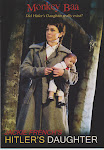
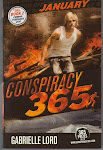
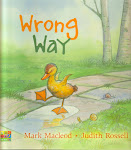
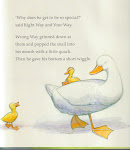
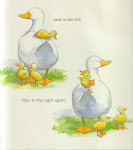

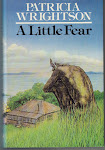

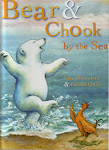

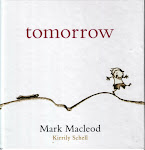
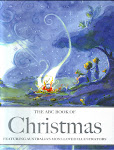

I'm never going to grow up either. Glad there are lots of us out there.
ReplyDeleteWunz I coodn't even spel orther, now I are wun.